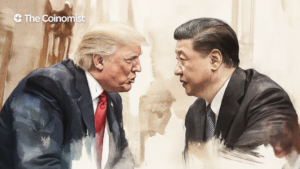Not Just Sake and Kimonos: What You Need to Know About Crypto Tokyo
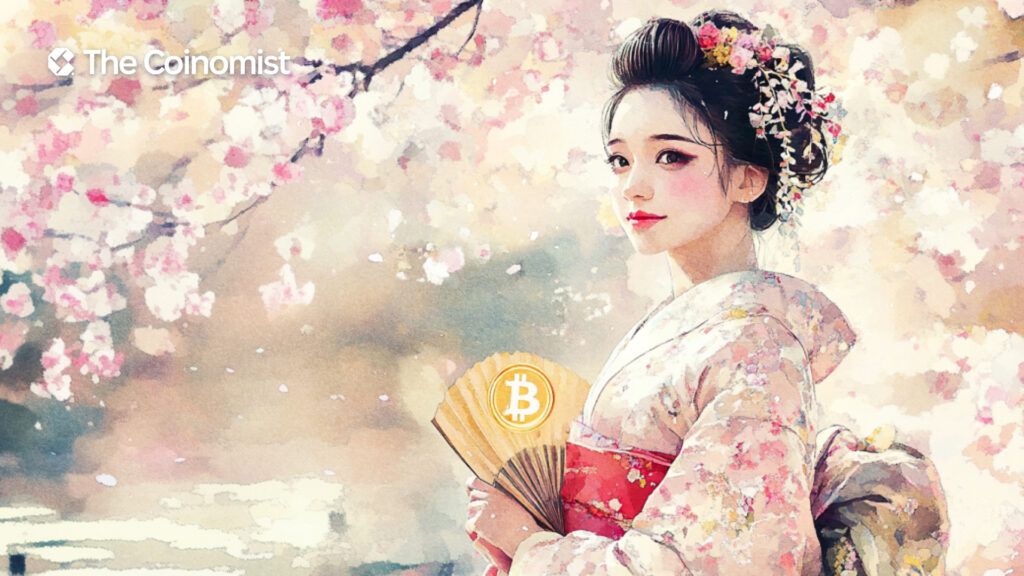
Japan combines advanced technology with deep-rooted tradition, emerging as a crypto industry leader in East Asia. Find out why Tokyo is a hotspot for crypto enthusiasts and what expats should know to settle in.
On this page
- Why Tokyo Became the Crypto Star of East Asia
- Regulation and Laws
- Infrastructure
- Culture
- Top Locations in Tokyo to Meet Fellow Crypto Enthusiasts
- Opportunities for Expats in Crypto Tokyo
- Tips for Visiting Tokyo
- Most Expensive and Affordable Neighborhoods for Renting in Tokyo
- Climate
- Cultural Norms and Etiquette in Crypto Tokyo
Why Tokyo Became the Crypto Star of East Asia
Tokyo stands out as a global crypto hub thanks to a rare combination of factors:
- Well-defined regulations
- Advanced infrastructure
- Unique cultural characteristics
The city attracts those interested in digital assets by offering a stable environment for both everyday use and long-term development in the crypto space.
Here's a closer look at what makes crypto Tokyo a frontrunner in this field across East Asia.
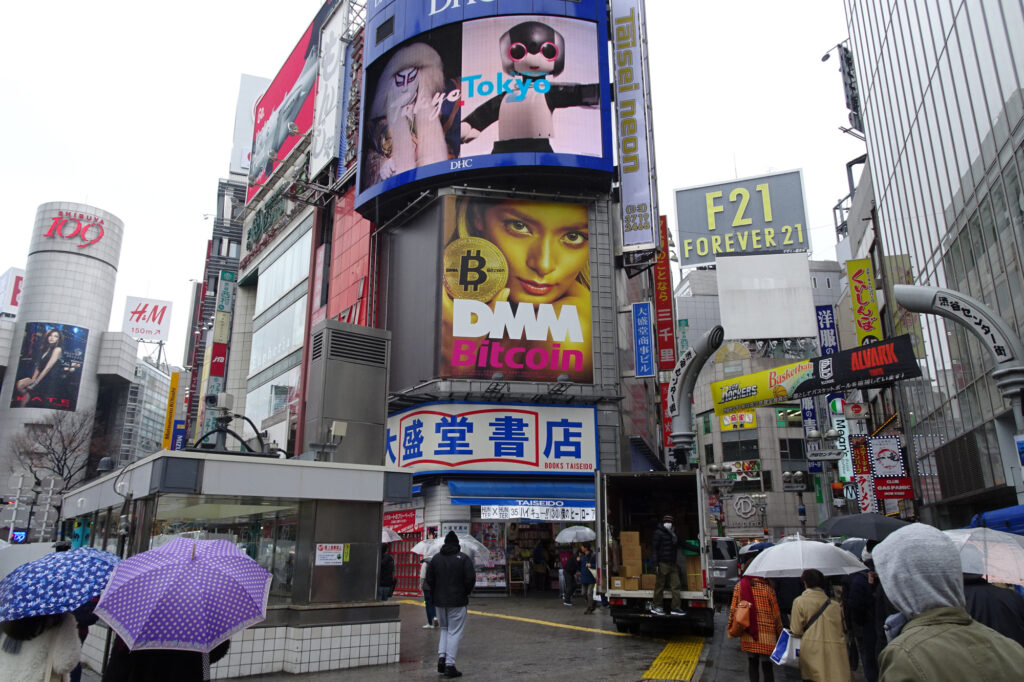
Regulation and Laws
Japan was among the first countries to recognize cryptocurrencies as a legal means of payment. This took place in 2017 when the Financial Services Agency (FSA) introduced clear rules for exchanges and transactions.
According to these regulations, all platforms are required to:
- Register officially with the authorities
- Comply with KYC (Know Your Customer) standards
- Ensure protection against cyberattacks
This approach to stronger regulatory oversight emerged after incidents like the collapse of Mt. Gox, one of the largest crypto exchanges at the time, in 2014. Today, digital assets are legal in Japan but are subject to strict regulations, creating a secure environment for users of cryptocurrency platforms.
For more details, read our article “Cryptocurrency Regulations in Japan: Key Features.”
Tokyo authorities have also shown interest in promoting technologies related to blockchain and the metaverse. In February 2024, the city launched a virtual tourism portal called HELLO! TOKYO FRIENDS on the Roblox platform. The project attracted so many visitors that officials decided to expand it to Osaka, the country’s second-largest city.
Infrastructure
Tokyo has a well-developed technological foundation that supports the use of cryptocurrencies. High-speed internet is widely accessible, allowing users to interact with blockchain networks quickly and securely. According to CoinATMRadar, the city is home to more than 60 crypto ATMs, and cryptocurrency exchange terminals can be found in all major shopping centers and train stations.
Major Japanese exchanges like bitFlyer and Coincheck are based in Tokyo and serve as key drivers and thought leaders in the local crypto market. A new standout in the space is financial company Metaplanet, which has signed an agreement with BTC Media to launch a Tokyo branch of Bitcoin Magazine. The firm is also building a strategic BTC reserve, following the example set by Michael Saylor’s company, Strategy.
The strong integration of digital payments with traditional systems makes Tokyo a practical and accessible city for those using cryptocurrency in their daily lives.
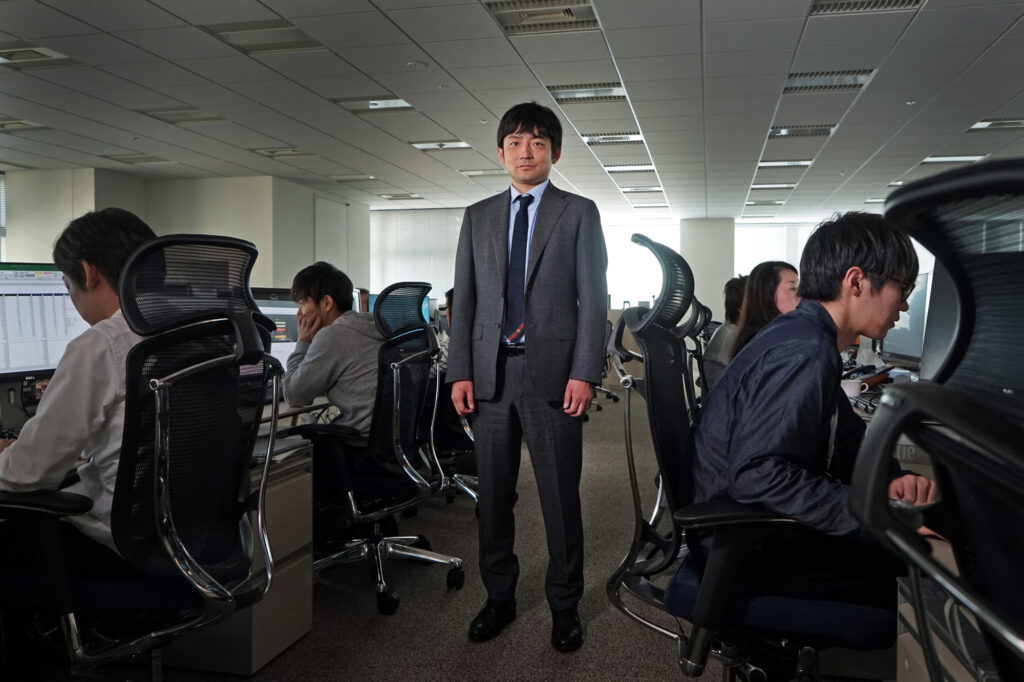
Culture
Japanese urban culture is notable for its openness to technological innovation, which has contributed to the widespread acceptance of cryptocurrencies.
Young people actively explore digital assets, while older generations tend to view them as part of financial evolution and are generally comfortable with the changes introduced by Web3 technologies.
Unlike in some countries where cryptocurrencies are seen as a form of protest against the system, in Japan, they are viewed as practical tools for income and everyday use. This openness to innovation, combined with a cultural emphasis on precision and detail, helps Tokyo maintain its position at the forefront of the crypto industry.
Related: Japanese Show Interest in Eco-Friendly Bitcoin Mining
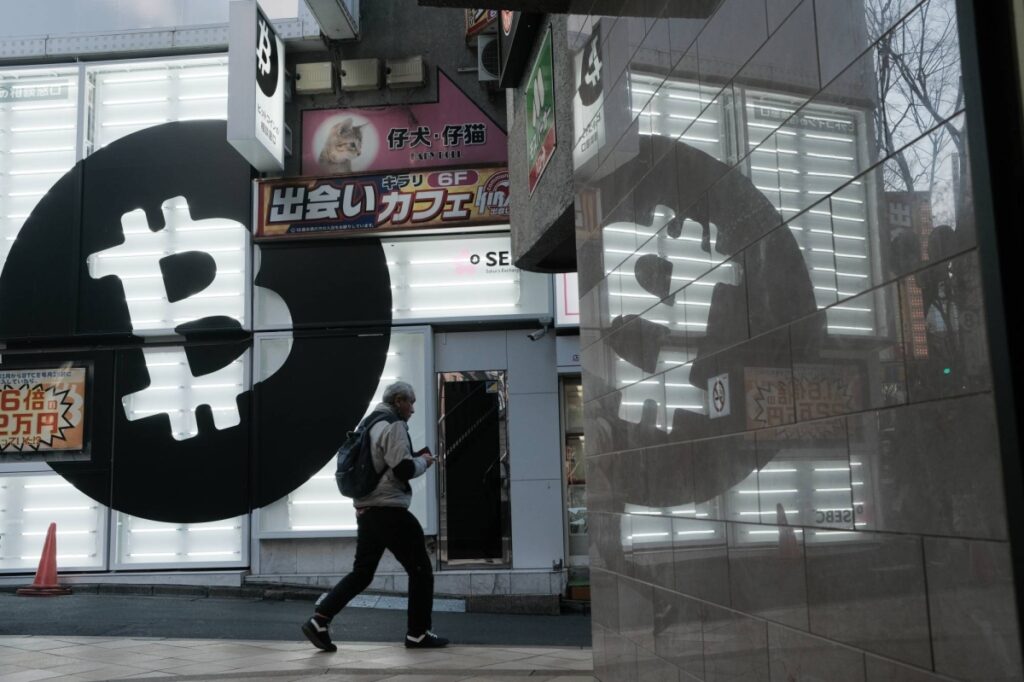
Top Locations in Tokyo to Meet Fellow Crypto Enthusiasts
Tokyo offers a wide variety of places and opportunities for people who use cryptocurrencies. The city has an active crypto community, which can be especially appealing to expats focused on digital assets. Here, it’s not only possible to spend crypto but also to find jobs, entertainment, and like-minded individuals.
There are also many retail locations in Tokyo where you can spend crypto:
- Akihabara District
Known for its electronics stores, Akihabara was one of the first areas in Tokyo that accepted cryptocurrencies for everyday purchases.
- Bic Camera Store Chain
Began accepting Bitcoin in 2019, making it possible to buy household items and electronics using digital currency.
- Pink Cow Café in Roppongi
Offers a menu that can be paid for with cryptocurrency via QR codes, allowing for quick and affordable transactions.
- Ginza
This shopping district, known for its concentration of high-end boutiques, also supports crypto payments. Stores like Kichijoji Marui and Shizuoka Modi partner with the local exchange Coincheck to accept stablecoins.
- Two Dogs Taproom in Roppongi
A craft beer pub where customers can pay for food and drinks with cryptocurrency, making it a popular spot for casual meetups after work.
Moreover, you can exchange cryptocurrency for cash at crypto ATMs located in key areas of Tokyo.
- In Shibuya, near the iconic scramble crossing, Gaia operates ATMs that charge a transaction fee of around 5%.
- At Shinjuku Station, one of the city’s busiest transit hubs, you’ll also find crypto terminals available for use.
- Another option is Bitrefill, a service that lets you buy vouchers with cryptocurrency, which you can then use at places like Lawson or Starbucks.
These locations show how quickly crypto Tokyo is bringing virtual currencies into everyday life.

Opportunities for Expats in Crypto Tokyo
Tokyo's crypto community stays active and open to newcomers. The Tokyo Bitcoin Meetup organizes monthly events at coworking spaces like WeWork in Shibuya. These gatherings bring together traders, developers, and expats, offering a space to discuss market trends and exchange knowledge.
Additionally, Tokyo hosts major international crypto events. One of the most recognized is Blockchain Tokyo. Taking part in these summits helps expats quickly integrate into the local crypto ecosystem.
Expats who are looking for work will find plenty of opportunities in Tokyo’s blockchain scene. For example, companies like LayerX and Quoine, both based in the city, actively hire developers and analysts. Starting salaries average around 5 million yen per year (about $35,000), and speaking Japanese greatly improves the chances of getting hired.
Freelancers are also in demand. Local startups frequently bring in consultants and pay them in crypto (usually in USDT).
Renting a place with crypto isn’t common yet, but in the Nakano area, some coworking spaces with apartments allow tenants to pay with digital currency using specialized platforms.
To learn more about platforms where you can find freelance jobs paid in crypto, read our article “Crypto Jobs Are Remote-First: Everything You Need to Know.”
Tips for Visiting Tokyo
Tokyo offers a truly unique experience, and everyone should consider visiting at least once. However, for expats planning a long-term stay in Japan, it's important to prepare for the country's distinct culture and everyday realities. Here are some essential tips that can make the transition smoother.
Most Expensive and Affordable Neighborhoods for Renting in Tokyo
Housing prices in Tokyo vary depending on the neighborhood, but overall, renting here costs significantly more than in most European cities.
Ginza and Roppongi are among the most expensive areas. For example, renting a small 20-square-meter studio in these districts typically costs between 200,000 and 300,000 yen per month ($1,400–$2,100). These locations work well for people who want to live close to business and entertainment hubs and don’t mind paying a premium.
For more budget-friendly options, consider Nakano or Asakusa. Rent in these areas starts at around 80,000 yen ($550). Both neighborhoods offer good access to public transportation and a more relaxed atmosphere, though commuting to central business districts usually takes about an hour.
Climate
Tokyo has hot, humid summers, with temperatures reaching up to 35°C. Most people rely on air conditioning to stay comfortable. The sun can be intense, and without protection, it's easy to get sunburned. That’s why many Japanese women wear long sleeves and carry light-colored umbrellas to shield themselves from the sun.
Winters stay relatively mild, with temperatures around 5°C, but winds from the sea often bring cold rain. Spring and autumn offer the most pleasant weather, with comfortable temperatures and beautiful seasonal scenery.
Cultural Norms and Etiquette in Crypto Tokyo
Japan has a distinct set of etiquette rules, and understanding them helps visitors feel more at ease during their stay:
- People value quiet in public spaces. Speaking loudly or taking phone calls in public comes across as rude. If you need to answer a call, step aside and keep your voice low. Phone conversations are not allowed on public transportation.
- Eating while walking on the street isn’t common and can lead to a fine. That said, Japanese police usually show understanding toward foreigners, knowing that local customs may feel unfamiliar or surprising to newcomers.
- A slight bow serves as a standard greeting in Japan, whether in shops or during introductions. People rarely shake hands, so it's best to follow local customs. In stores and cafes, customers place cash or cards on a small tray instead of handing them directly to the cashier.
- Dining comes with its own cultural guidelines. Avoid sticking chopsticks upright in a bowl of rice, as this resembles a funeral ritual. Also, don’t pass food directly from one set of chopsticks to another.
- Before entering traditional homes, temples, or some restaurants, remove your shoes. This shows respect and maintains cleanliness.
- Strong perfume tends to make people uncomfortable. The Japanese believe that a person should smell fresh and clean, without any added fragrance.
Staying patient and paying attention to these details helps you avoid awkward situations and build respect with the local community.
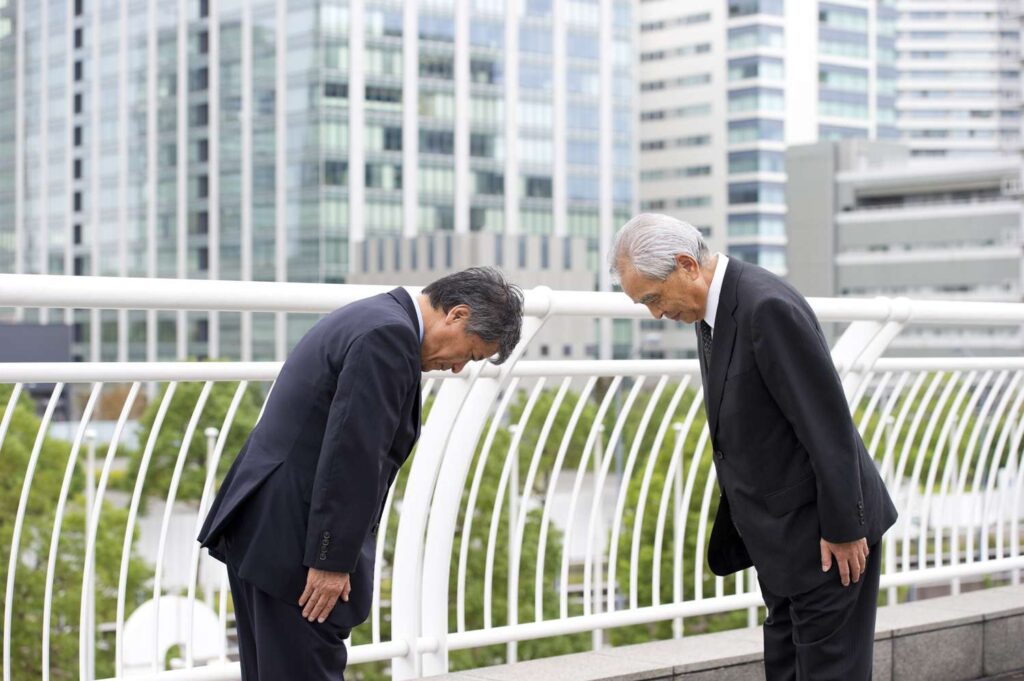
Crypto Tokyo might appeal to:
- Crypto travelers who appreciate advanced technology, reliable city infrastructure, and excellent service
- Freelancers with steady, high income who don’t mind living in small spaces
The city may not be the best fit for:
- Travelers on a tight budget who need low-cost options
- People who have a hard time coping with heat
- Digital nomads who prefer open landscapes and wide, scenic views
To learn how a young Japanese hikikomori earned hundreds of millions of dollars, read our article “Takashi Kotegawa: The Trader Who Broke the Japanese Stock Exchange.”
The content on The Coinomist is for informational purposes only and should not be interpreted as financial advice. While we strive to provide accurate and up-to-date information, we do not guarantee the accuracy, completeness, or reliability of any content. Neither we accept liability for any errors or omissions in the information provided or for any financial losses incurred as a result of relying on this information. Actions based on this content are at your own risk. Always do your own research and consult a professional. See our Terms, Privacy Policy, and Disclaimers for more details.











